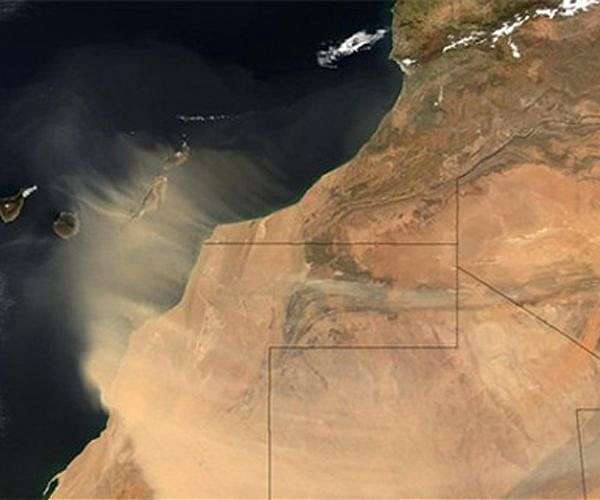Saharan dust clouds release uncertainty about the growth of the solar energy of Europe
While Europe speeds up its transition to solar energy, scientists increase alarms over a growing natural obstacle: Saharan -dust storms. New findings shared on the European Geosciences Union General Assembly (EGU25) emphasize how dust from North Africa hinders the production of solar electricity in Europe and complicating the forecast efforts.
Dr. Gyorgy Varga and his research team, based on data from more than 46 Saharan delivery between 2019 and 2023, presented proof that mineral particles in the air considerably disrupt photovoltaic (PV) systems in both Central and South Europe. The affected countries are Hungary, Portugal, Spain, France, Italy and Greece.
Every year the Sahara emits billions of tons of dust, with tens of millions of tons that float to European airspace. This substance stubs and absorbs sunlight, lowers solar radiation on the ground level and promotes cloud development, all of which reduce the output of the solar panel. Researchers emphasized that the current prediction systems, which depend on fixed aerosol data, are insufficient during dust events.
The team argues for a shift to dynamic models that contain real-time dust concentrations and aerosol-cloud interactions. Such improvements would improve the precision of solar energy planning and strengthening the stability of the grid.
“There is a growing need for dynamic prediction methods that take into account both meteorological and mineralogical factors,” says VARGA.
“Without them, the risk of underperformance and grid instability will only grow if solar energy becomes a larger part of our energy mix.”
The study also warns of long-term effects of solar hardware dust, with reference to problems such as surface infection and wear that lead to efficiency losses and increased maintenance costs. These insights are part of broader EU and Hungarian initiatives to build climate resilience and efficient renewable energy systems. The research is supported by the National Research, Development and Innovation Office (FK138692), the Hungarian Academy of Sciences and the EU-supported national multidisciplinary laboratory for climate change.
Research report:The Shadow of the Wind: photovoltaic power generation under the dusty skies of Europe

